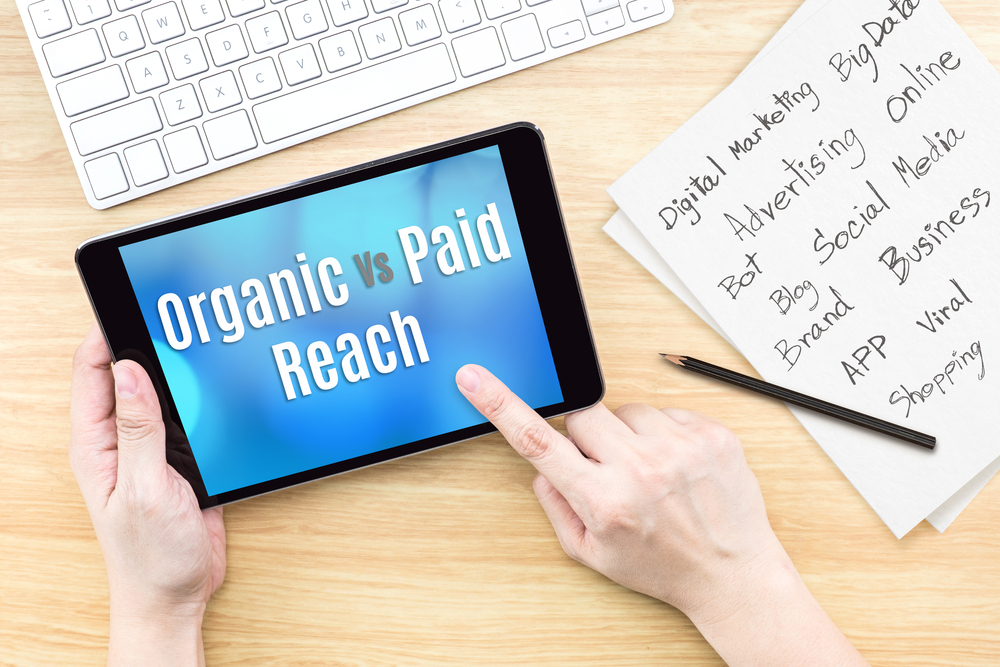Over the years, the online habits of consumers have changed dramatically. With more people opting for e-shopping, there are many opportunities for businesses to attract their audience digitally. That said, they become more cautious of which path to follow regarding marketing.
There are two types of marketing, organic and paid. As online and social media platforms are abundant, entrepreneurs often neglect to acknowledge organic vs paid marketing facts.
What is Organic and Paid Marketing?
Organic marketing is a method to generate traffic for a site without using any media coverage. To be successful with this strategy, you need multiple ways to attract leads and convert users. On the other hand, paid marketing draws traffic to a brand by purchasing advertising, which allows for targeting a particular audience. It involves buying clocks from social platforms like Google, Facebook, and Twitter, to name a few.
However, developing the core differences between both marketing techniques will help them identify the best interest of their business growth.
Organic vs Paid Marketing: Major Differences
Digital marketing has never been a one-size-fits-all type of promotion. In this regard, brands seek the latest tactics to reach and engage their audience. Their main motive is to drive traffic to their website and increase conversions.
Do you know both the organic and paid marketing approaches complement each other? They often perform better when working as a team than in organic vs paid marketing. But how?
For instance, a brand might post and promote blogs; simultaneously, they launch a paid social media marketing campaign to drive more traffic to their site. As a collaboration, marketers may boost their social posts by linking them with their organic content.
Ultimately, the marketing goal is the same: to promote a brand’s services to get more customers onboard. However, let’s take a closer look at both the organic and paid marketing approaches below.
-
Organic Marketing Is Permanent, While Paid Marketing Isn’t
The first difference between organic vs paid marketing is their lifespan. Once organic content like blogging hits the internet, it continues to attract viewers as long as it retains relevancy. While not every organic content is ever-green, brands still manage to curate that continues to rank in search engines for months. Sometimes, it keeps on ranking for years after the publication.
On the contrary, paid marketing only works as long as you’re paying for it. As soon as it stops, ads will no longer work for your site or draw customers to your table. In this way, paying becomes a temporary strategy, so you must reap the benefits rapidly.
-
Organic Marketing Is Relatively More Affordable Than Paid
Organic marketing strategies tend to be handy for handling a start-up, as with a little budget, ranking your website among high-tech competitors is possible.
On the contrary, for paid marketing, you need to organise a hefty budget upfront. You need to have a significant amount for the task since it requires a constant cash flow.
-
Organic Marketing Is Time-Consuming, But Paid Provides Instant Results
The most exciting feature in the organic vs paid marketing debate is the time consumption of the outcomes. While organic marketing owns longevity, it also consumes significant time to show results. During the long-term approach, it’s imperative to consider that you’re generating SEO-focused content so that your competitors. So, you’ll have to wait to appear on the search engine results page (SERP).
If you don’t have enough time, paid marketing techniques can get your products and services in the eyes of viewers, and that too, sooner. Pay-per-click is one of the best ways to ensure that the audience notices your brand before anyone else’s.
-
Organic Marketing Is Content-Driven, While Paid Isn’t
Search engines like Google are popular because users have trusted them in times of need. Also, Google has earned it by constantly delivering relevant and high-quality content on the SERP. To maintain its reputable position, Google wants to provide the best search engines possible.
Companies must show a higher level of expertise, authoritativeness, and reliability with exclusive content. That’s why brands that want to get displayed in organic search results focus on content-driven strategies that are helpful to consumers. That’s not the case with paid marketing since its prime objective is to promote the site’s content that it’s been paid for.
-
Organic Marketing Is Unpredictable While Paid Isn’t
Since it’s easy to estimate sales, measuring ROI is also easy with paid marketing. With time, you can learn the concept behind the paid clicks before witnessing them turning into sales. Once you can estimate the ROI, it’s easy to accumulate your success. In the case of organic marketing, the outcomes are unpredictable as you’re making your way in the dark. And so, determining an expected profit is hard.
Final Thoughts
Now that we’ve come through a detailed guide for organic vs paid marketing, both approaches can be beneficial according to your business requirements. As such, the amount you choose to invest in these marketing strategies depends on your marketing budget. However, one thing that sets it apart is choosing an expert marketing agency for it.
Remember that being backed up by professionals like Zoom Digital can step your marketing game for good, regardless you’re going for the organic or paid one.


